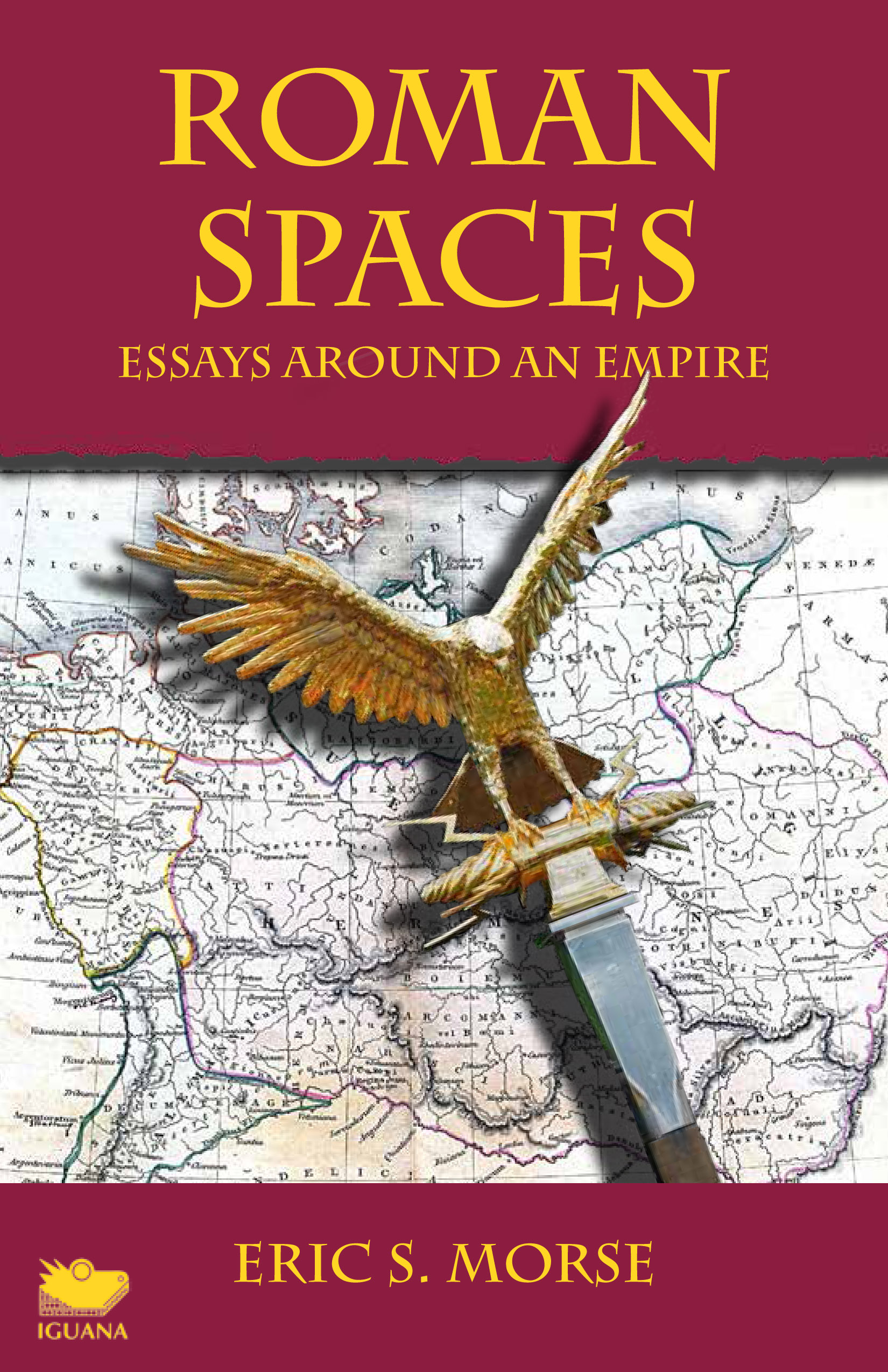Available at www.amazon.ca, amazon.co.uk, amazon.com and chapters.indigo.ca
Prices in the $20.00 range.
E-book expected shortly.
There are three simple criteria to judging the worth of a book. Is the prose lucid? Is the book a pleasure to read? Will the reader learn something or find it is thought provocative?
Eric Morse rings all three bells.
There are many provocative and informed essayists and writers out there; and there are so many people who could do a good job if they only managed to curtail the complicated nuances of Academese, the tedious precision of Legalese, or the implied mysteries for initiates found in the latest jargon of Pentagonese. There are a few writers like Conrad Black who write very well, but feel compelled to severely test a reader’s own vocabulary (the Baron is probably a frustrated pedant).
Then there is Eric Morse. Roman Spaces is laced all through with Roman terminology , names and references, but this detracts nothing from a simple prose. If one word could describe his style, it would be ‘folksy’; he is as comfortable as an old shoe. He is as comfortable as an old friend settling into a well-sprung armchair for a chat… which is something Eric does easily enough.
Pleasure in reading comes from emotional engagement. The grief and guilt of Gilgamesh lets us feel the common humanity across 4,000 years. We thrill at the charge of the Rohirrim to the gates of besieged Minas Tirith and privately fight a tear when Victor Hugo tells us how the bones of Quasimodo and Esmeralda were found. Second only to this is the pleasure of amusement; good quality innocent amusement is a delight.
Eric is a delightful writer who casually reaches across the centuries and brings the strategic problems of the Romans to life with contemporary examples culled from our own headlines. The life of a Primi ordines is easily compared to that of a political officer in Kipling’s Northwest Frontier in a way that illuminates the work of a CIMIC officer in Afghanistan. This is done with a delicious economy of words that is the hallmark of an innocent wit… and what was the Roman equivalent of a box lunch anyway?
The ultimate worth of a book comes with the simple test. By reading a book, did one learn something new, or gain some new insight? There is far too much self-validation going on these days and fires in the ‘New Age’ or ‘Political Science’ sections of most book stores would not be a tragedy, but this only makes those books that really do teach us something and knit more connections in our neural pathways more valuable than ever.
Roman Spaces builds on a series of lectures that Eric has given which have all brought the Romans to life once more and make their experiences important to us. This is without the patronizing or gushing expositions that too many historians can fall into; rather we are reminded of the common human problems that have never really gone away.
Eric constantly reminds readers that the Romans did not have the sense of themselves that history gives us… They did not really think of themselves as an ‘empire’ until well into the Imperial era, they were not much better at transmitting the ‘lessons learned’ of their experiences than we are — and we don’t have the excuses that would let the Romans off the hook.
Some things never change. Eric betrays the fact that he is shaped by far more than a detailed knowledge of Roman history when he quotes the script of The Princess Bride by warning us of the folly of getting involved in a land war in Asia. It would seem that Iraq was as much of a problem for Rome as it was for the United States and for pretty much the same reasons. He also brandishes Monty Python (“what have the Romans ever done for us?”) with the same panache and occasionally one can guess that Science Fiction writers like Poul Anderson lurk behind copies of Cicero, Tacticus or Margaret MacMillan or Sir Lawrence Freedman on his bookshelves.
In the meantime, what was a major Roman expedition doing over 250 kilometres deep inside ‘barbarian’ Germany in 235 AD? Is promoting regime change beyond your borders ever a wise idea? Does the professionalism of today’s war colleges really give us that much of an edge over the Romans? Eric, by the way, points out that enthusiastic amateurs made the British Empire too. Lastly, what is an empire – exactly – anyway?
About the only thing in Roman Spaces that is unforgiveable is that he strips off the whole story of the ‘Eagle of the Ninth’ — without gratuitously insulting the great storyteller Rosemary Sutcliffe. Those who like history to contain a strong element of ‘narrativium’ (as Terry Prachett would put it) might dislike the chapter.
As a collection of essays Eric’s footnotes are more in the way of informative and amusing asides than anything else. However, he does append a handy reading list for all his fellow bibliophiles at the end of the book. In the meantime, readers who want a pleasurable hour or two can do no better for themselves than to spend it engrossed in Roman Spaces.

